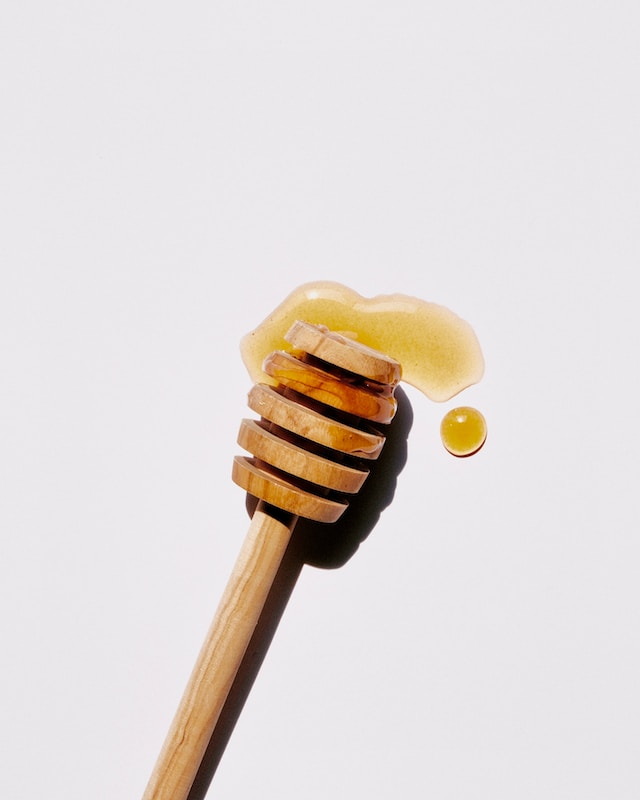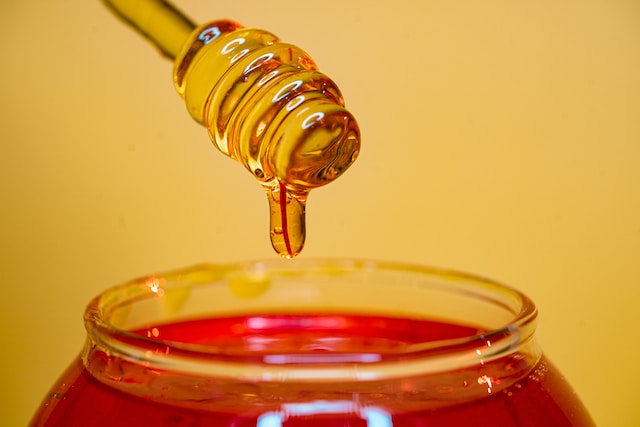Honey is a delicious and natural sweetener that is enjoyed by many around the world. It has a range of health benefits, including antioxidant and antibacterial properties.
However, like any food, consuming too much honey can have negative effects on your health. In this article, we will explore what happens if you eat too much honey.
Calories And Sugar
Honey is a source of natural sugar, with one tablespoon of honey containing approximately 17 grams of sugar and 64 calories.
While honey may be a healthier alternative to refined sugar, it is still important to monitor your intake, especially if you have diabetes or are trying to manage your weight.
Digestive Issues
Consuming too much honey can lead to digestive issues, such as diarrhea, bloating, and stomach pain.
This is because honey contains fructose, which can be difficult for some people to digest in large quantities. Additionally, honey has a laxative effect and can cause diarrhea if consumed in excess.
Weight Gain
As mentioned, honey is a source of natural sugar and calories. Consuming too much honey can lead to weight gain, especially if you are consuming more calories than your body needs.

This can increase your risk of obesity, which is associated with a range of health problems, including heart disease and type 2 diabetes.
Tooth Decay
Honey is a sticky substance that can cling to your teeth and increase your risk of tooth decay. This is especially true if you consume honey in its pure form or in products like honeycomb.
It’s important to brush your teeth regularly and limit your intake of honey to reduce your risk of tooth decay.
Allergic Reactions
Some people may be allergic to honey, which can lead to a range of symptoms, including hives, swelling, and difficulty breathing. If you have a known allergy to bees or pollen, it’s important to avoid honey and honey products.
While honey is a healthy and natural sweetener, consuming too much of it can have negative effects on your health. It’s important to monitor your intake and limit your consumption to avoid digestive issues, weight gain, tooth decay, and allergic reactions.
Health Advantages
Honey is a natural sweetener that has been used for centuries for its various health benefits. Here are some of the potential health benefits of eating honey:
Rich In Antioxidants
Honey contains antioxidants, including flavonoids and phenolic acids, that can help protect your body from damage caused by free radicals. These antioxidants can help reduce inflammation, improve heart health, and lower your risk of chronic diseases such as cancer.
Improves Digestive Health
Honey has been shown to have prebiotic effects, which means that it can promote the growth of beneficial gut bacteria. This can help improve digestion, reduce inflammation in the gut, and boost overall digestive health.
May Soothe Coughs And Sore Throats
Honey has natural antibacterial and anti-inflammatory properties that can help soothe coughs and sore throats. It can also help reduce the severity and duration of colds and other respiratory infections.
Might Help Heal Wounds
Honey has been used for centuries as a natural wound healer. Its antibacterial properties can help prevent infection and promote healing in minor cuts, burns, and other skin irritations.
May Improve Heart Health
Studies have found that consuming honey can help improve various risk factors for heart disease, including high cholesterol, high blood pressure, and high blood sugar. Honey can also help reduce inflammation and improve blood flow, which can help protect against heart disease.
Boost Energy Levels
Honey is a natural source of carbohydrates, which can provide a quick source of energy. Its natural sugars can also help replenish glycogen stores in the muscles, which can improve athletic performance and reduce fatigue.

Honey is a delicious and natural sweetener that can provide various health benefits. Its antioxidants, prebiotic effects, and antibacterial properties can help improve digestive health, soothe coughs and sore throats, and promote wound healing.
Honey may also improve heart health and boost energy levels. However, it’s important to consume honey in moderation, as it is high in calories and sugar.
Can It Help You In Losing Weight?
While honey is often touted as a natural sweetener that can help with weight loss, there is limited scientific evidence to support this claim.
Honey is a source of natural sugar, with one tablespoon containing approximately 17 grams of sugar and 64 calories.
While honey may be a healthier alternative to refined sugar, it still contains calories and should be consumed in moderation, especially if you are trying to lose weight.
However, some studies have suggested that consuming honey may have a positive effect on weight loss when compared to consuming sugar or artificial sweeteners.

For example, a study published in the Journal of the American College of Nutrition found that consuming honey instead of sugar may help reduce appetite and lead to less calorie consumption overall.
Honey may also have a positive effect on metabolism, which can help with weight loss. A study published in the Journal of Medicinal Food found that consuming honey may help improve insulin sensitivity and increase the production of hormones that regulate appetite and metabolism.
While these studies suggest that honey may have potential benefits for weight loss, more research is needed to confirm these findings.
It’s important to remember that consuming honey in excess can lead to weight gain, and that weight loss ultimately comes down to creating a calorie deficit through a combination of healthy eating and regular exercise.
Conclusion
Honey is a natural sweetener that offers various potential health benefits. It contains antioxidants, prebiotic effects, and antibacterial properties that can improve digestive health, soothe coughs and sore throats, promote wound healing, improve heart health, and boost energy levels.
While honey may have potential benefits for weight loss, it should be consumed in moderation due to its high sugar and calorie content. As with any food, it’s important to incorporate honey into a balanced and healthy diet that includes a variety of nutrient-rich foods.
As always, it’s important to consult with a healthcare professional before making any significant changes to your diet or lifestyle.
